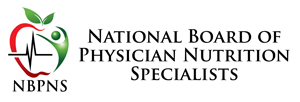Ethical and Legal Issues
Textbooks and chapters
Nutrition and Medical Ethics: The interplay of medical decisions, patient’s rights and the judicial system. In Shils ME, Olson JA, Shike M, Ross AC. Modern Nutrition in Health and Disease. 9 th ed . Baltimore: Williams & Wilkins, 1999: Chapter 102.
Review articles
Gillick MR. Rethinking the role of tube feeding in patients with advanced dementia. NEJM 2000;342:206-10. This NEJM Sounding Board article considers the benefits and risks of tube feeding in patients with advanced dementia.
Huang ZB, Ahronheim JC. Nutrition and hydration in terminally ill patients: an update. Review. Clin Geriatr Med . May 2000;16(2):313-25. This article is an updated about artificial nutrition and hydration in light of prevailing medical evidence is presented.
Quill TE, Byock IR. Responding to intractable terminal suffering: the role of terminal sedation and voluntary refusal of food and fluids. ACP-ASIM End-of-Life Care Consensus Panel. Ann Intern Med . 2000;132:408-14. Overview of multiple aspects of terminal illness. This paper presents terminal sedation and voluntary refusal of hydration and nutrition as potential last resorts that can be used to address the needs of such patients. Provides alternatives for patients, families, and clinicians who are morally opposed to physician-assisted suicide.
MacFie J. Ethical and legal considerations in the provision of nutritional support to the perioperative patient. Review. Curr Opin Clin Nutr Metab Care Jan 2000; 3(1):23-9. Review of ethical issues relevant to the use of nutritional support in the perioperative patient and guidance on appropriate action by clinicians.
Original reports
Adams KE, Cohen MH, Eisenberg D, Jonsen AR. Ethical considerations of complementary and alternative medical therapies in conventional medical settings. Ann Intern Med 2002;137:660-4. The authors present a risk-benefit framework that can be applied to determine the appropriateness of using CAM therapies in various clinical scenarios.
Berger JT. Ethical challenges of partial do-not-resuscitate (DNR) orders: Placing DNR orders in the context of a life-threatening conditions care plan. Arch Intern Med 2003;163:2270-5.
Brett AS, Jersild P. “Inappropriate” treatment near the end of life: Conflict between religious convictions and clinical judgment. Arch Intern Med 2003;163:1645-9.
Herrmann VM. Nutrition support: ethical or expedient, and who will choose? JPEN 1999;23(4):195-202.
Rock CL. Conflict of interest: An important issue in nutrition research and communications. J Am Diet Assoc 1999;99:31-32. A concise and clear treatment of funding issues as they relate to university-based research and the peer-review process. The author discusses several sections of the ASNS/ASCN Code of Ethics and applies these guidelines to actual potential conflict of interest situations.
O’Sullivan Maillet J, Vyas A, Rodrigues J. Ethical issues in nutrition and human immunodeficiency virus. Nutr Clin Pract 2004;19:365-374.
Case studies
Annas GJ. Nancy Cruzan and the right to die. NEJM 1990;323:670-3. This NEJM Sounding Board piece reviews the case of Nancy Cruzan, a young woman in a persistent vegetative state resulting from an automobile accident, and the U.S. Supreme Court decision regarding discontinuation of her tube feeding. See also accompanying Occasional Note in the same issue: Annas GJ, et al . Bioethicists’ statement on the U.S. Supreme Court’s Cruzan decision. NEJM 1990;323:686
Clinical algorithms, practice standards, position papers
American Dietetic Association. Position of the American Dietetic Association: Ethical and legal issues in nutrition, hydration, and feeding. J Am Diet Assoc 2002;102:716-726. A systematic review of issues related to feeding the dying patient, including multiple case examples.
Position of the American Dietetic Association and Dietitians of Canada: Nutrition intervention in the care of persons with human immunodeficiency virus infection. J Am Diet Assoc 2004:104:1425-1441. A statement addressing multiple complex aspects of HIV infection and treatment to improve survival, body functions, and overall quality of life.
